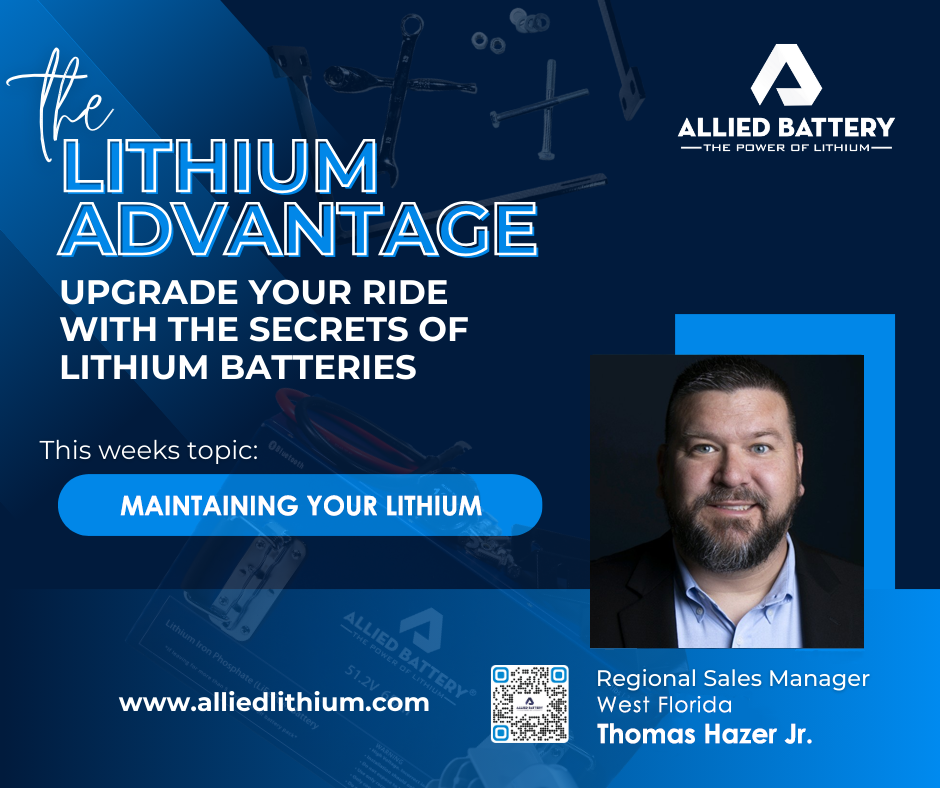Your Cart is Empty
Allied Battery - St. Louis, MO
Menu
Allied Battery - St. Louis, MO
Protect Your Lithium: Maintaining a Maintenance Free Battery
2 min read

Protect Your Lithium: Maintaining a Maintenance Free Battery
For many years the most common battery for golf carts, RVs, boats and other mobile power needs was a lead-acid battery that required a routine maintenance schedule of electrolyte levels. This is commonly known as watering your batteries. Watering batteries is the most expensive cost in maintaining these batteries. It is not the cost of the water; it is the time, effort and most importantly the improper watering that elevates these costs. Most lead-acid batteries need to be replaced due to premature battery failure caused by not watering or over watering.
Maintenance-free batteries or sealed batteries do not require any watering. These types of batteries may be AGM, Sealed Lead Acid, or even Allied Lithium batteries. These batteries, especially Lithium, have a higher initial purchase price, but can hold a much lower cost of ownership across time.
As the lithium battery market continues to grow, consumers need to understand the importance of properly maintaining their investment. There is a common misconception that maintenance free means just that, - no maintenance is required. Even the most robust battery needs some maintenance and correct care to extend the life of the battery.
To extend the life of a Lithium battery it is critical to follow these maintenance tips to achieve the optimum performance from your battery.
- Charge early and often – Lithium performs better and longer when it maintains a higher state of charge. Constantly operating your battery in the 60% and higher state of charge for peak results. We recommend fully charging after each use. Only charge with approved certified matching charger. Allied carries waterproof chargers for our 36V, 48V and 72V LiFePO4 Lithium products.
- Never over-discharge your Lithium battery. It is recommended to never drop below 20% power. When a Lithium battery is over-discharged it builds up heat that can cause cell failure and BMS shut down.
- Check your terminals for loose connections and tighten accordingly.
- Inspect your charger plugs for wear, and damage to any extension cords.
- Keep your battery, charger, and surrounding compartment area clean.
- Proper storage – Charge battery to 100%, power off battery, and unplug charger. For long term storage (4-8 weeks), disconnect accessories and/or use approved solenoids, and recharge battery if below 60%. Batteries being stored for extended periods of time (8 weeks plus) should be completely disconnected and stored at 50% state of charge.
- Avoid prolonged extreme temperatures.
For additional information please visit our website / www.alliedlithium.com
Thomas J. Hazer Jr.
Regional Sales Manager
Allied Battery

An Allied Lithium Battery Clean Install
